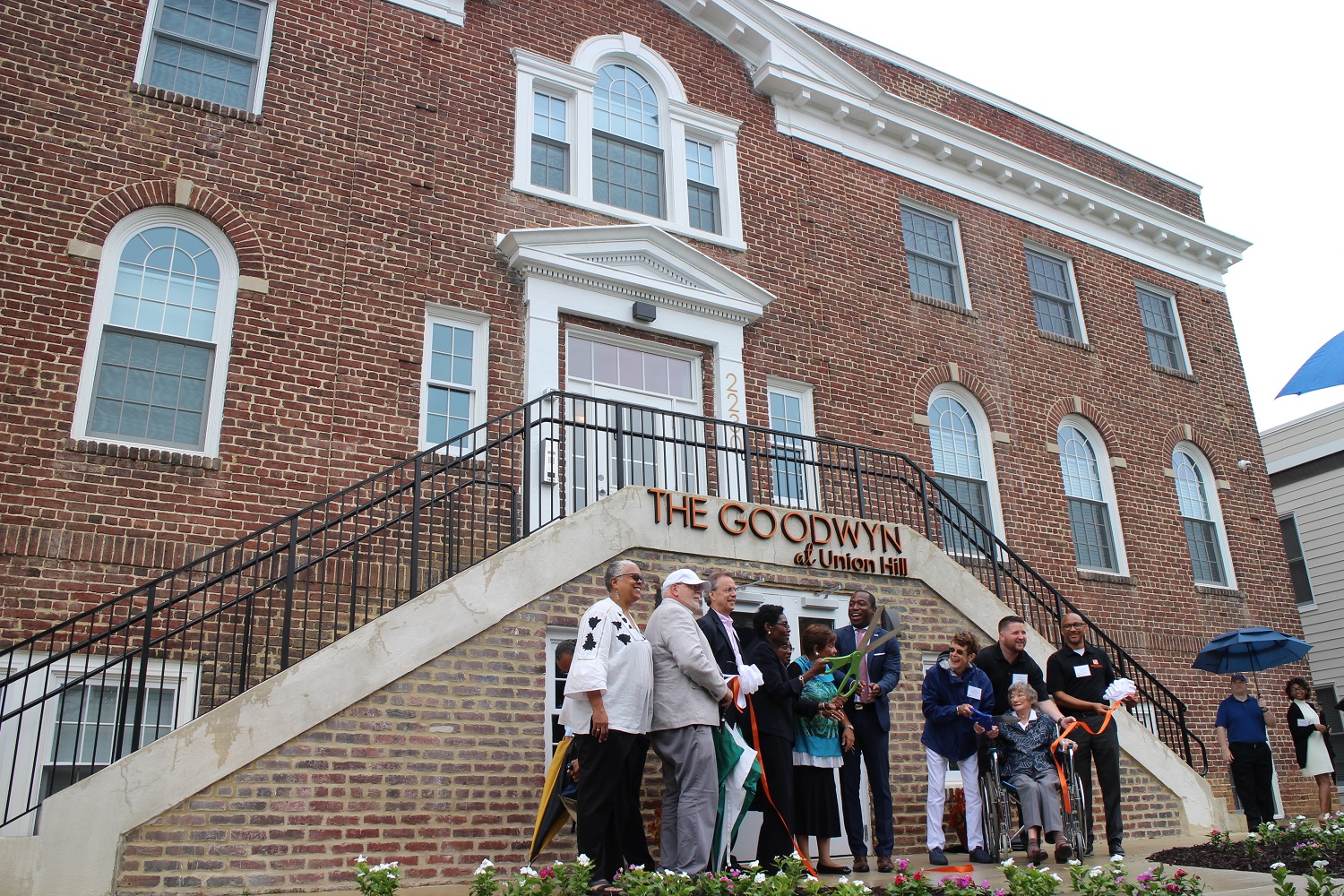After 33 years working side by side to increase housing options and reduce homelessness, two locally-based nonprofits are joining forces to create a regional housing powerhouse.
Better Housing Coalition and Virginia Supportive Housing announced an agreement to combine the two organizations after two years of merger discussions that were prolonged by the pandemic.
The combined nonprofit, expected to emerge with a new name in early 2023, will create a regional housing behemoth with upward of $135 million in total net assets and an initial footprint stretching from Richmond to Charlottesville and Hampton Roads.
By 2025, the groups expect to increase their combined output of new income-based housing construction and supportive housing by 50 percent, and double their number of homeowners served, the announcement said.
BHC’s Greta Harris will continue her CEO role for the combined nonprofit, with VSH Executive Director Allison Bogdanovic serving as its president.
“It’s a pretty radical shift for us,” Harris said this week. “We lost a little time because of the pandemic. But it is a merger of opportunity, ultimately to serve more people better.”
Harris said the two groups will be able to have a greater impact for more people in more places by combining their resources, staff and back-office operations.
“Over the last couple of years, the awareness that everyone needs safe shelter has really grown, and I think lots of different partners need to do things differently to get a different scaled and quality outcome. That’s what we’re going to be doing by coming together,” she said.
Both founded in 1988, BHC and VSH have followed separate paths with similar goals.
Richmond-based BHC has built more than 1,500 income-based housing units in Central Virginia, creating a portfolio that includes 15 multifamily rental communities and 250 single-family homes serving more than 2,700 individuals or families. The nonprofit totals about 75 employees.
VSH, which provides permanent housing and support services aimed at combating homelessness, has a portfolio of 17 rental communities and five scattered-site housing programs. Headquartered in Henrico with a staff of 150, the nonprofit’s housing serves more than 1,600 individuals or families in the Richmond, Charlottesville and Hampton Roads regions.
With the merger, VSH’s Bogdanovic said in the announcement, the groups have an opportunity “to create inclusive, thriving communities that break down income barriers between neighbors, and to combine our respective expertise to solve the most pressing housing questions facing our communities today.”
Harris said a priority for the new organization will be expanding its reach into Hampton Roads, where she said there are fewer housing nonprofits active. She said government officials and industry representatives in the region expressed enthusiasm about the potential for a merger.
“There aren’t a lot of nonprofit players in that market,” Harris said. “What we’re looking to do is grow our real estate development and property management teams to focus on expansion, over time, in Hampton Roads.”
Harris said the next year will be spent working out the logistics of combining the two groups. She said other housing nonprofits should consider doing the same, stressing strength in numbers and scalability.
“We’re projecting that we’ll double our portfolio over the next five years,” Harris said. “We want to be just one model of scaling up, and hope that other partners in the affordable housing arena will do likewise.”
After 33 years working side by side to increase housing options and reduce homelessness, two locally-based nonprofits are joining forces to create a regional housing powerhouse.
Better Housing Coalition and Virginia Supportive Housing announced an agreement to combine the two organizations after two years of merger discussions that were prolonged by the pandemic.
The combined nonprofit, expected to emerge with a new name in early 2023, will create a regional housing behemoth with upward of $135 million in total net assets and an initial footprint stretching from Richmond to Charlottesville and Hampton Roads.
By 2025, the groups expect to increase their combined output of new income-based housing construction and supportive housing by 50 percent, and double their number of homeowners served, the announcement said.
BHC’s Greta Harris will continue her CEO role for the combined nonprofit, with VSH Executive Director Allison Bogdanovic serving as its president.
“It’s a pretty radical shift for us,” Harris said this week. “We lost a little time because of the pandemic. But it is a merger of opportunity, ultimately to serve more people better.”
Harris said the two groups will be able to have a greater impact for more people in more places by combining their resources, staff and back-office operations.
“Over the last couple of years, the awareness that everyone needs safe shelter has really grown, and I think lots of different partners need to do things differently to get a different scaled and quality outcome. That’s what we’re going to be doing by coming together,” she said.
Both founded in 1988, BHC and VSH have followed separate paths with similar goals.
Richmond-based BHC has built more than 1,500 income-based housing units in Central Virginia, creating a portfolio that includes 15 multifamily rental communities and 250 single-family homes serving more than 2,700 individuals or families. The nonprofit totals about 75 employees.
VSH, which provides permanent housing and support services aimed at combating homelessness, has a portfolio of 17 rental communities and five scattered-site housing programs. Headquartered in Henrico with a staff of 150, the nonprofit’s housing serves more than 1,600 individuals or families in the Richmond, Charlottesville and Hampton Roads regions.
With the merger, VSH’s Bogdanovic said in the announcement, the groups have an opportunity “to create inclusive, thriving communities that break down income barriers between neighbors, and to combine our respective expertise to solve the most pressing housing questions facing our communities today.”
Harris said a priority for the new organization will be expanding its reach into Hampton Roads, where she said there are fewer housing nonprofits active. She said government officials and industry representatives in the region expressed enthusiasm about the potential for a merger.
“There aren’t a lot of nonprofit players in that market,” Harris said. “What we’re looking to do is grow our real estate development and property management teams to focus on expansion, over time, in Hampton Roads.”
Harris said the next year will be spent working out the logistics of combining the two groups. She said other housing nonprofits should consider doing the same, stressing strength in numbers and scalability.
“We’re projecting that we’ll double our portfolio over the next five years,” Harris said. “We want to be just one model of scaling up, and hope that other partners in the affordable housing arena will do likewise.”





